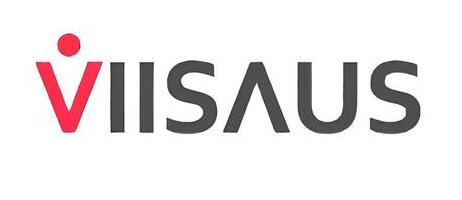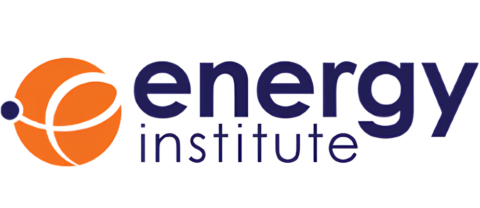
POLICY
The NMDPRA Industry Sustainability Initiative (NISI)
MEMAN, unwavering in its commitment to sustainability, proudly endorses the NMDPRA Industry Sustainability Initiative (NISI). NISI is meticulously designed to align with the Global Sustainability Development Goals (SDG 3 – Good Health and Well-Being, SDG 7 - Affordable and Clean Energy, SDG 8 - Decent Work and Economic Growth, SDG 9 - Industry, Innovation, and Infrastructure, SDG 11 - Sustainable Cities and Communities, SDG 13 - Climate Action, SDG 16 - Peace, Justice, and Strong Institutions, SDG 17 - Partnerships for the Goals). It forms the foundation of MEMAN's resolve to reduce emissions, enhance health and well-being, ensure affordable and clean energy, and promote safety and responsible economic growth.
This initiative aims to create over $575 billion in capital investment opportunities for Nigeria through the decarbonization of operations. The investment opportunities are highlighted sector by sector:
$272 billion in power
$127 billion in infrastructure
$96 billion in oil and gas processing optimization
$80 billion in industry
$2.8 billion in clean cooking
Achieving these targets requires a strong government commitment and collaboration with the private sector, using technological innovation. The NMDPRA and the Nigerian Government are encouraged to harness funding opportunities for gas projects from international financiers dealing with agriculture.
The importance of developing and including young people in the decarbonization drive is emphasized, as they are expected to play a major role in implementing the initiatives in the future.
MEMAN's Approach
Sustainability has been a longstanding commitment for MEMAN, evident in our unwavering focus on safety across facilities, secure transportation, employee and community health, and environmental protection. Additionally, MEMAN has a history of prioritizing operational efficiency and the quality of our products and services. Building on these foundations, we are intensifying our efforts by placing additional emphasis on innovation and automation technology to reduce costs and product losses along the supply chain.
This includes a specific focus on the use and commercialization of alternative energies such as solar energy at our filling stations, as well as gas (CNG) to replace AGO in our distribution systems (trucks) and depots.

A solar-powered service station in Lagos and a Low-budget solar home
MEMAN's advocacy position is founded on three pillars, addressing key aspects of sustainability and progress in the energy industry:
1. Health, Safety, Security, Environmental Protection & Quality (HSSEQ)
Health: Prioritizing employee well-being is fundamental to a sustainable approach. Healthy employees contribute to a productive and resilient workforce. Regular health check-ups, wellness programs, and access to healthcare facilities can enhance the overall health of the workforce. Healthy employees are likely to have higher morale, increased job satisfaction, and are more likely to stay with the organization, contributing to long-term sustainability.
Safety: Rigorous safety protocols indicate a commitment to preventing accidents and injuries in the workplace. Regular training sessions help maintain a safety-conscious culture, where employees are aware of potential hazards and equipped with the knowledge to mitigate risks. A focus on safety is not only a legal requirement but also contributes to sustainability by minimizing disruptions due to accidents, reducing worker compensation costs, and fostering a culture of care.

A Cargo Vessel Utilizing Safety Standards
Security: Ensuring the security of assets is crucial for operational continuity, safeguarding investments and the host community. Security measures also extend to the protection of sensitive information, intellectual property, and other critical assets. By preventing theft, vandalism, or unauthorized access, organizations can maintain a stable operational environment and trust of the host community, supporting long-term sustainability.
Environmental Protection: Compliance with environmental regulations demonstrates a commitment to sustainable practices and social responsibility. Proactive measures to prevent environmental damage, such as pollution control, waste reduction, and resource efficiency, contribute to long-term environmental sustainability. Responding effectively to emergencies, such as spills or accidents, minimizes negative impacts on ecosystems and communities, reinforcing the organization's commitment to environmental protection. The comprehensive integration of health, safety, security, and environmental protection reflects a holistic approach to sustainability. Prevention of incidents and accidents not only protects human life and assets but also avoids legal and financial consequences that can impact the organization's long-term viability. Sustainable practices in these areas contribute to positive corporate reputation, stakeholder trust, and the overall resilience of the organization in the face of evolving challenges. The HSSE pillar, when approached comprehensively, contributes significantly to the overall sustainability of an organization by safeguarding the well-being of employees, ensuring operational safety, securing assets, and protecting the environment. This integrated approach aligns with responsible and ethical business practices, fostering long-term viability and resilience.
2. Equitable Recompense for All Stakeholders
Customers: Continuously searching and finding the balance between quality service/value rendition and affordability for the benefit of the customer is at the forefront of MEMAN's commitment. Equitable recompense for customers translates to fair and affordable energy prices. Customers must get the exact value for what they have spent. A liter should be a liter. This ensures access to energy for all, contributing to social equity and meeting basic needs for individuals and businesses. Affordable energy prices also promote economic sustainability for customers, enabling them to thrive and contribute to the overall economic development of the country. The introduction and commercialization of biofuels like ethanol are a good way to reduce costs. The energy industry needs to prepare the infrastructure for the use of biofuels.
Employees: Fair compensation for employees in the industry ensures a motivated and skilled workforce. It fosters a positive work environment, contributing to the long-term stability and sustainability of the industry. Employees are crucial for maintaining industry standards, compliance, and overall governance.
Investors: Investors seek returns on their investments. Equitable recompense ensures that they receive fair and consistent return maintaining investor confidence. Fair compensation fosters a stable investment climate, attracting more investors and capital for industry development. Sustainable returns for investors contribute to the financial health of the industry, enabling it to grow and adapt to changing market conditions.
Service Providers/Suppliers: Fair compensation for service providers and suppliers ensures a reliable and quality supply chain. This fosters long-term partnerships and encourages innovation and efficiency in delivering services and products to the industry. A sustainable relationship with suppliers contributes to the resilience of the industry, reducing the risk of disruption in the supply chain.
Local Community: Equitable recompense for the local community involves fair compensation for land use, employment opportunities, and community development projects. It contributes to social sustainability by promoting community well-being, reducing inequalities, and fostering positive relationships between the industry and the community. A positive relationship with the local community helps in obtaining and maintaining the social license to operate, crucial for the industry's ongoing presence and success.
Government: Government involvement in the energy industry extends to various aspects, primarily through regulatory measures. Equitable compensation necessitates acknowledging the costs associated with implementing and enforcing these regulations. This encompasses expenses related to monitoring industry activities, ensuring compliance with safety standards, and overseeing environmental impact assessments.
Taxation and royalties are commonly collected by governments from energy companies. Achieving equitable compensation requires a fair and transparent taxation system that strikes a balance between government revenue needs and the industry's profitability. Clear guidelines for royalty payments, tied to resource extraction, also play a crucial role in ensuring fairness.
The development of energy infrastructure, including pipelines and transmission facilities, often requires substantial investment. Governments may contribute to or directly invest in these projects to foster industry growth. Equitable compensation entails fair cost sharing arrangements, ensuring that the government receives a reasonable return on its investments.
Addressing the social impact of energy projects on local communities is another facet of equitable compensation. Governments can seek compensation by allocating funds for community development programs, job creation, and environmental conservation initiatives. Collaborative efforts between the industry and the government ensure that these initiatives align with broader societal interests.
Governments investing in research and development projects related to energy technologies and sustainability is also part of the equitable compensation landscape. Recognizing and supporting these initiatives, with active industry participation, contribute to advancements in clean energy and efficiency.
Ensuring a stable and secure energy supply is a paramount concern for governments. Equitable compensation may involve collaborative efforts with the industry to enhance energy security and resilience. This includes investments in diversified energy sources, grid modernization, and contingency planning to address potential disruptions.
The energy industry is a significant contributor to employment. Equitable compensation involves working with the government on initiatives promoting job creation and skill development within the sector. Supporting workforce training programs ensures a skilled and sustainable labor force for the industry.
Public-private partnerships between the government and the energy industry can be a vehicle for equitable compensation. These partnerships often entail joint investments in projects, with shared risks and rewards, fostering a mutually beneficial relationship.
Transparent reporting of financial transactions, tax payments, and other contributions to the government is integral to equitable compensation. Open and accountable business practices play a crucial role in building trust and ensuring that compensation aligns with regulatory requirements.
3. Innovation for Continuous Improvements
Leveraging Advanced Technologies: Utilizing advanced technologies allows MEMAN to enhance operational efficiency and reduce environmental impact. Adoption of smart technologies, automation, and data analytics can lead to optimized processes, improved resource utilization, and increased overall efficiency. Continuous monitoring and integration of emerging technologies contribute to the industry's adaptability and resilience in a rapidly changing landscape.
Adopting Best Practices: Incorporating best practices ensures that MEMAN aligns with industry standards and regulations. Benchmarking against best practices facilitates the identification of areas for improvement, leading to enhanced performance and sustainability. Continuous improvement through the adoption of best practices supports a culture of excellence and ongoing development within the organization.

A Standard Depot
Fostering a Culture of Innovation: A culture of innovation encourages employees to generate and implement creative solutions. It supports a proactive approach to problem-solving, driving continuous improvements in processes, products, and services. Employee engagement in innovation fosters a dynamic and adaptive organizational culture, critical for addressing evolving challenges in the energy industry.
Improving Operational Efficiency: Innovation in operational processes enhances efficiency, reducing waste and resource consumption. Streamlining workflows and optimizing logistics contribute to cost savings and overall sustainability. Improved operational efficiency supports the long-term viability of the industry by ensuring competitiveness in the market and minimizing environmental impact.
Enhancing Product Quality: Innovation in product quality ensures that the industry delivers reliable and sustainable energy products to its customers. High-quality products contribute to customer satisfaction, brand loyalty, and a positive industry reputation. Continuous improvements in product quality also support the industry's commitment to responsible business practices and ethical standards.
Reducing Costs and Minimizing Product Losses: Innovations aimed at cost reduction contribute to the financial sustainability of the industry. Strategies to minimize product losses, such as leak detection technologies and efficient storage solutions, align with environmental sustainability goals. Cost-efficient operations and minimized losses contribute to the overall resilience and profitability of the industry.
Exploring and Commercializing Alternative Energy Sources: The exploration of alternative energy sources aligns with the industry's commitment to sustainability and reduced environmental impact. Commercializing alternatives like solar energy, biofuels and compressed natural gas (CNG) demonstrates a forward-thinking approach to energy production. Diversifying energy sources contributes to the resilience of the energy industry in the face of changing market dynamics with increasing costs of energy and the demand for sustainable energy solutions.
The integration of innovation for continuous improvements across various aspects ensures a comprehensive approach to sustainability. Technological advancements, best practices, and alternative energy sources are interconnected components contributing to MEMAN's long-term success. By embracing innovation, MEMAN positions itself as a proactive and adaptable player in the energy industry, aligning with global goals and sector-specific initiatives.
The sustainability pillar of "Innovation for Continuous Improvements" highlights MEMAN's commitment to staying at the forefront of the energy industry by embracing technology, fostering a culture of innovation, and exploring sustainable alternatives. This approach not only enhances the organization's operational efficiency but also contributes to its resilience and long-term success in a rapidly evolving energy landscape.
The holistic approach of equitable recompense for all stakeholders fosters a sense of shared ownership and commitment to the industry's success. When all stakeholders are fairly compensated, it promotes a sustainable and symbiotic relationship that is crucial for the long-term viability and resilience of the downstream energy industry. Sustainability in this context is not just about environmental factors but extends to the economic, social, and governance aspects, creating a balanced and enduring ecosystem.
MEMAN remains steadfast in its commitment to sustainability, aligning with global goals and actively participating in sector-specific initiatives. By focusing on HSSE, equitable recompense, and continuous innovation, MEMAN aims to contribute significantly to the long-term success and responsible practices in the energy industry.
ADVOCACY
Adaptability and Optimizing The Supply Chain
In the ever-changing landscape of Nigeria's downstream petroleum sector, adaptability is not just a desirable trait; it is a survival imperative. Spencer Johnson's best-selling book, "Who Moved My Cheese?" offers valuable insights into dealing with change, and its lessons resonate profoundly with the diverse stakeholders in the downstream petroleum supply chain.


